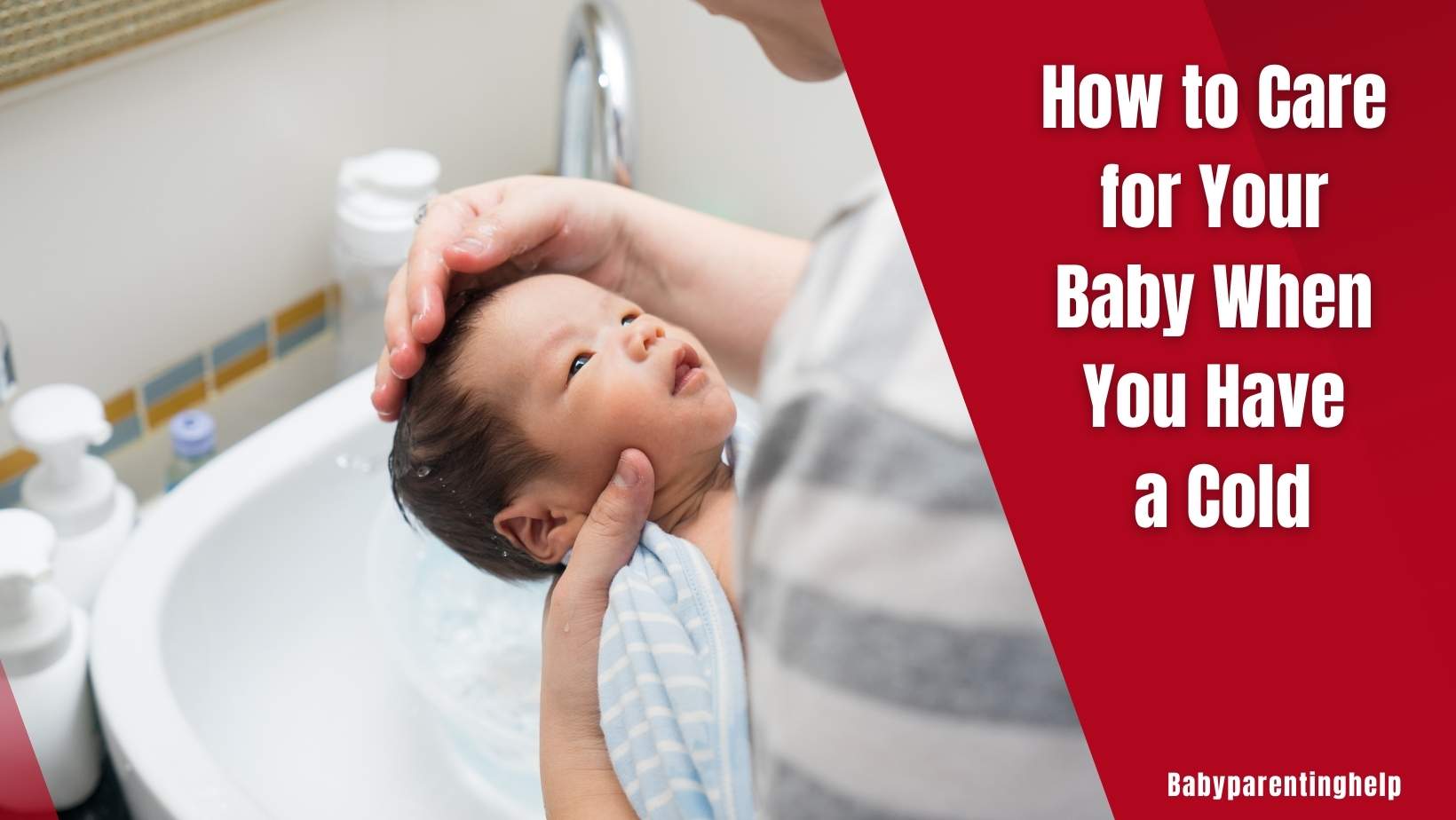A cold can be challenging, especially when you have a baby to care for. As a parent, it’s essential to prioritize both your health and your baby’s well-being. This article will provide practical tips and guidance on caring for your baby when you have a cold. By following these steps, you can minimize the risk of spreading the illness to your little ones while still providing them with the care and attention they need.
Contents
- 1 Recognizing the symptoms of a cold in babies
- 2 Preventing the spread of the cold
- 3 Maintaining good hygiene
- 4 Seeking help and support
- 5 Soothing remedies for your baby
- 6 Ensuring proper nutrition
- 7 Keeping your baby hydrated
- 8 Monitoring your baby’s temperature
- 9 Creating a comfortable environment
- 10 Balancing rest and playtime
- 11 Managing your own cold symptoms
- 12 Strengthening your immune system
- 13 When to seek medical advice
- 14 Conclusion
- 15 F.A.Q.s (Frequently Asked Questions)
Recognizing the symptoms of a cold in babies
It’s crucial to identify the signs of a cold in your baby. Common symptoms include a runny or stuffy nose, sneezing, coughing, mild fever, and fussiness. Keep an eye out for these indicators to provide timely care.
Preventing the spread of the cold
To prevent the cold from spreading to your baby and other family members, follow these precautions:
- Wash your hands frequently.
- Cover your mouth and nose with a tissue when coughing or sneezing.
- Avoid close contact with your baby when possible.
- Disinfect commonly touched surfaces regularly.
Maintaining good hygiene
Maintaining good hygiene is vital for your baby’s health. Remember to:
- Clean your baby’s hands using gentle baby wipes.
- Use baby-safe disinfectants to clean their toys and utensils.
- Wash your hands before handling your baby’s bottles, pacifiers, or other items they frequently encounter.
Seeking help and support
Don’t hesitate to ask for help from your partner, family members, or friends. Assistance with baby care allows you to rest and recover, reducing the chances of spreading the cold further.
Soothing remedies for your baby
Ease your baby’s discomfort with these soothing remedies:
- Use a cool-mist humidifier to relieve congestion.
- Offer saline drops to clear their stuffy nose.
- Elevate their head slightly during sleep to improve breathing.
Ensuring proper nutrition
Even with a cold, ensuring your baby receives proper nutrition is crucial. Offer them a balanced diet, including breast milk or formula, and introduce soft, easy-to-digest foods as appropriate.
Keeping your baby hydrated
Encourage your baby to drink fluids to stay hydrated. Offer small amounts of water, breast milk, or formula regularly. Adequate hydration helps alleviate congestion and aids in their recovery.
Monitoring your baby’s temperature
Regularly monitor your baby’s temperature to detect any fever or significant changes. Use a reliable thermometer to check their temperature, and consult a healthcare professional if necessary.
Creating a comfortable environment
Maintain a comfortable environment for your baby by:
- Keeping the room well-ventilated.
- Dressing them in comfortable, breathable clothing.
- Avoiding exposure to cigarette smoke or other irritants.
Balancing rest and playtime
While it’s essential for your baby to rest, engaging in gentle playtime can also be beneficial. Find a balance between rest and activities to keep them entertained while respecting their need for adequate rest.
Managing your own cold symptoms
To recover faster and reduce the impact of your cold on your baby, take care of yourself. Get plenty of rest, stay hydrated, and consider over-the-counter remedies suitable for breastfeeding mothers.
Strengthening your immune system
Preventing future illnesses can help protect your baby. Strengthen your immune system by:
- Eating a balanced diet rich in fruits, vegetables, and whole grains.
- Engaging in regular exercise.
- Getting sufficient sleep.
When to seek medical advice
If your baby’s symptoms worsen or persist for an extended period, consult your paediatrician. They can provide proper guidance, assess your baby’s condition, and recommend appropriate treatment if necessary.
Conclusion
Caring for your baby during a cold requires taking certain precautions, maintaining good hygiene, and seeking support when needed. Following the outlined steps and focusing on your well-being and your baby’s, you can navigate this challenging situation more effectively.
F.A.Q.s (Frequently Asked Questions)
- Can I breastfeed my baby while I have a cold? Yes, you can breastfeed your baby while having a cold. The antibodies in your breast milk may provide some protection for your baby.
- Should I keep my baby away from other family members if I have a cold? Limiting close contact between your baby and other family members is advisable to reduce the transmission risk.
- Are there any natural remedies to alleviate my baby’s cold symptoms? Saline drops, a cool-mist humidifier, and keeping your baby hydrated are natural remedies that can help alleviate cold symptoms.
- When should I be concerned about my baby’s cold? If your baby has a high fever, severe cough, or difficulty breathing, seek medical advice promptly.
- How long does a cold typically last in babies? A cold in babies usually lasts for about one to two weeks. If symptoms persist or worsen, consult a healthcare professional.

I am an accomplished writer, a devoted father, and a compassionate advocate for new and experienced parents in my baby’s parenting journey. With a wealth of firsthand experience and a deep understanding of the joys and challenges of raising children, I become a trusted voice in the parenting community.


